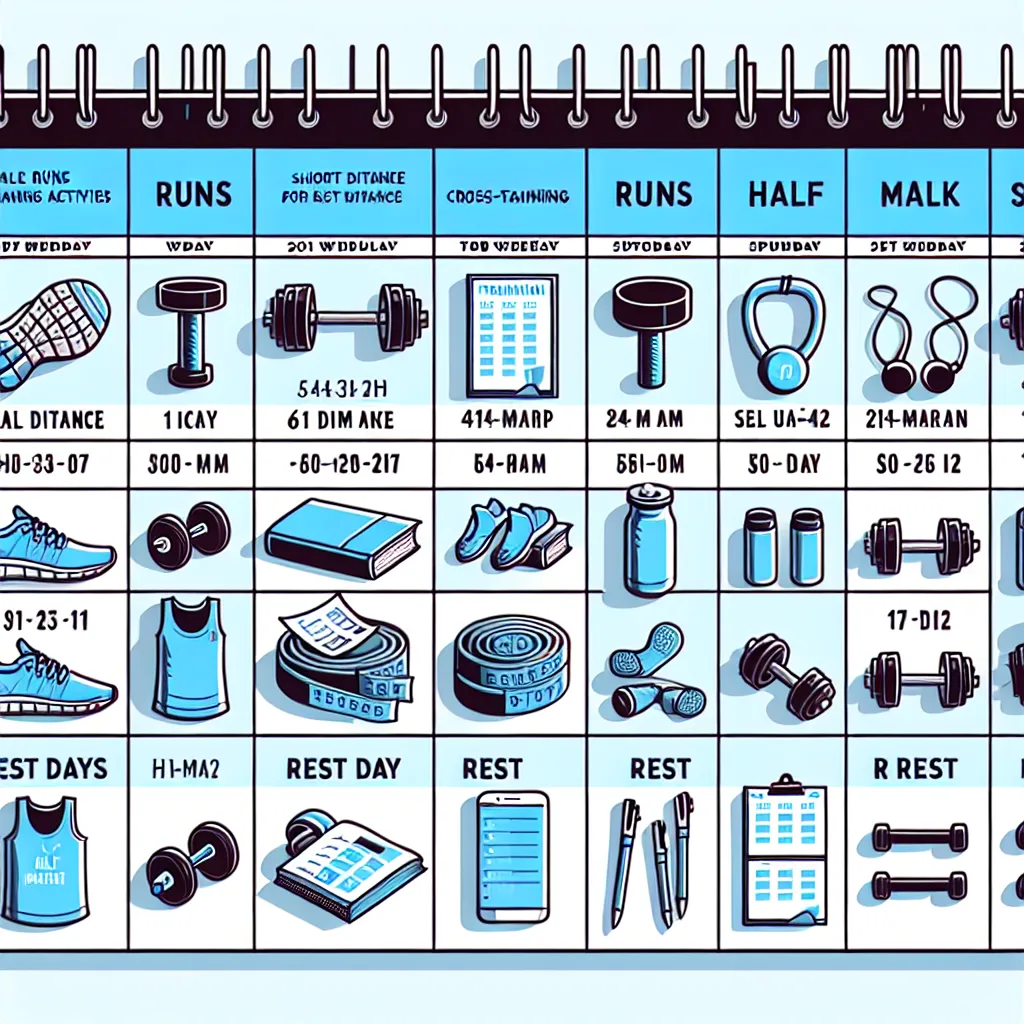Half marathon training is a popular topic that often appears in IELTS exams, particularly in speaking and writing tasks. Understanding the key vocabulary related to this subject can significantly enhance your performance in the test. Let’s explore the essential terms and phrases you need to know to excel in your IELTS preparation.
Definition and Context
Half marathon (noun) /hɑːf ˈmærəθən/: A long-distance running event of 13.1 miles or 21.1 kilometers, half the distance of a full marathon.
Examples in Context:
-
“Sarah has been training for a half marathon for the past three months.”
Analysis: This sentence demonstrates the use of “half marathon” as a noun and introduces the concept of training, which is crucial for this event. -
“The local half marathon attracts thousands of participants every year.”
Analysis: Here, “half marathon” is used to describe the event itself, highlighting its popularity. -
“After completing his first half marathon, John felt a sense of accomplishment.”
Analysis: This example shows how participating in a half marathon can be a personal achievement. -
“Half marathon training requires dedication and a well-structured plan.”
Analysis: This sentence emphasizes the importance of proper preparation for the event. -
“Many runners use half marathons as a stepping stone to full marathon distances.”
Analysis: This example illustrates how half marathons fit into the broader context of long-distance running.
Half marathon training is commonly discussed in IELTS Speaking Part 2 tasks, where candidates might be asked to describe a personal achievement or a challenging experience. It also frequently appears in Writing Task 2 essays, particularly those related to health, fitness, or personal development.
Vocabulary Analysis
Key Terms and Phrases:
-
Training plan (noun): A structured schedule outlining workouts and rest days for race preparation.
Example: “A well-designed training plan is essential for half marathon success.” -
Long run (noun): An extended training run, typically done once a week to build endurance.
Example: “My long run this week is 10 miles, the farthest I’ve ever run.” -
Cross-training (noun): Engaging in alternative forms of exercise to improve overall fitness and prevent injury.
Example: “I incorporate cross-training activities like swimming and cycling into my half marathon preparation.” -
Tapering (verb): Reducing training volume in the weeks leading up to the race to ensure peak performance.
Example: “It’s important to start tapering about two weeks before your half marathon.” -
Pace (noun): The speed at which a runner completes each mile or kilometer.
Example: “Maintaining a consistent pace throughout the race is crucial for a strong finish.”

Synonyms and Antonyms:
-
Synonyms for “training”: preparation, practice, conditioning, rehearsal
-
Antonyms for “training”: inactivity, idleness, neglect
-
Synonyms for “endurance”: stamina, resilience, perseverance
-
Antonyms for “endurance”: weakness, fragility, vulnerability
Memory Techniques
Mind Mapping:
Create a mind map centered on “Half Marathon Training” with branches for:
- Physical Preparation (sub-branches: long runs, speed work, cross-training)
- Mental Preparation (sub-branches: goal setting, visualization, positive self-talk)
- Nutrition (sub-branches: hydration, carb-loading, energy gels)
- Recovery (sub-branches: stretching, rest days, massage)
Storytelling:
Imagine a character named Alex who decides to run a half marathon. Follow Alex’s journey from the initial decision through training challenges, setbacks, and ultimately crossing the finish line. Use the vocabulary in context throughout the story to reinforce memory.
Practice Exercises
-
Writing Task:
Write a paragraph describing your ideal half marathon training plan, incorporating at least five key terms from the vocabulary list above. -
Speaking Practice:
Describe a time when you set a challenging physical goal (like training for a half marathon). How did you prepare, and what did you learn from the experience? -
Sentence Completion:
Fill in the blanks with appropriate vocabulary:- The runner increased her weekly ___ (long run) distance gradually.
- ___ (Cross-training) helped prevent injuries during intense training periods.
- Proper ___ (pacing) is essential to avoid burnout during the race.
Conclusion
Mastering the vocabulary associated with half marathon training can significantly enhance your performance in the IELTS exam. By understanding and using these terms correctly, you’ll be better equipped to discuss topics related to fitness, goal-setting, and personal achievement. Remember to practice using these words in context regularly, and don’t hesitate to incorporate them into your speaking and writing tasks.
We encourage you to share your experiences with learning and using this vocabulary in the comments below. Have you encountered any of these terms in your IELTS preparation or actual tests? How do you plan to incorporate them into your study routine?
For more insights on achieving personal goals and describing accomplishments, check out our article on how to describe a time when you achieved a goal. This can provide additional context for discussing half marathon training in your IELTS responses.